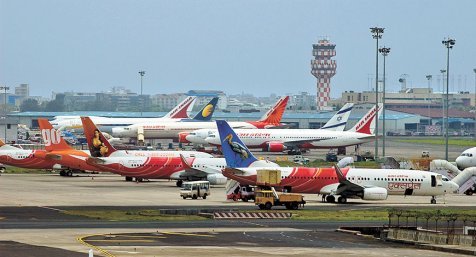New Delhi, April 2: The Civil Aviation Ministry Friday said its proposal to impose 2 per cent levy on air tickets to fund regional connectivity scheme remains a part of the draft aviation policy while ruling out any impact of the cess on air fares.
The government in the revised draft policy, unveiled on October 30, had proposed 2 per cent levy on all airfares to mop up funds for its regional connectivity scheme, a move which has been opposed by various stake holders, including global aviation body, IATA.
“Exact nature of the levy is being worked out. Once the Cabinet approves the levy, then of course it will take place,” Civil Aviation Secretary R N Choubey said here on the sidelines of the 29th anniversary of nodal aviation security agency BCAS.
Noting that the proposed levy will be “very very small”, Choubey said it would not impact the price of tickets. “(It is) because the fall in the prices of ATF will vary substantially capture and absorb the impact of this very small levy,” he said.
The government had earlier planned to levy the proposed cess from January. However, it deferred the move due to its failure to finalise the draft civil aviation policy, which is expected to be taken to the Cabinet for approval this month.
The proposal has, however, been opposed by various stake holders on the ground that an additional charge would only increase the ticket prices with the International Air Transport Association (IATA) terming it as “against the International Civil Aviation Organisation’s norms”.
According to Choubey, the proposed regional airports have been kept out of this levy, which is part of the regional connectivity scheme (RCS).
RCS is one of the thrust areas of the draft policy.
“Nature of levy is under discussion and whatever be the case of the levy it will not include these airports,” he said.
Choubey also said the ministry was in discussions with the state governments and airline operators on the issue of 15 regional airports, which have been proposed in this year’s union budget.
“While the policy gets approved, these airports will also be identified. It is a matter of one month,” he added.
Underlining the need for striking a balance between the imperatives of growth and those of aviation security, he said that the two cannot work in isolation.
He said that stress would be on building cost effective, aircraft-centric security rather than airport-centric security.




























